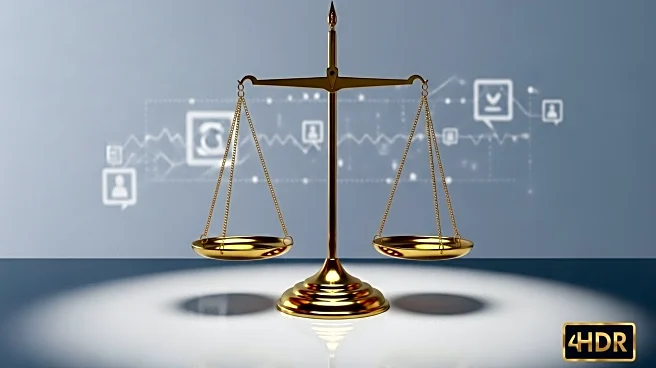What's Happening?
The Internal Revenue Service has levied over $162 million in penalties against taxpayers who claimed fraudulent tax credits based on misleading information from social media. These claims often involve illegitimate tax breaks such as the Fuel Tax Credit and the Sick and Family Leave Credit. Social media posts have led thousands to file inaccurate returns, resulting in denied refunds and hefty penalties. The IRS has imposed over 32,000 penalties, costing taxpayers more than $162 million. Taxpayers are encouraged to stay informed to avoid these costly mistakes.
Why It's Important?
This development underscores the growing influence of social media on financial decisions and the potential for misinformation to lead to significant financial penalties. The IRS's action highlights the importance of verifying tax-related information and the risks associated with following unverified advice. Taxpayers who fall victim to these schemes face not only financial losses but also potential legal consequences. This situation calls for increased awareness and education on legitimate tax practices and the dangers of social media scams.
What's Next?
The IRS is likely to continue monitoring social media for fraudulent tax advice and may increase efforts to educate the public on identifying and avoiding scams. Taxpayers should be vigilant and consult official IRS resources or professional tax advisors to ensure compliance with tax laws. The IRS may also enhance its communication strategies to reach a broader audience and prevent further instances of tax fraud.









